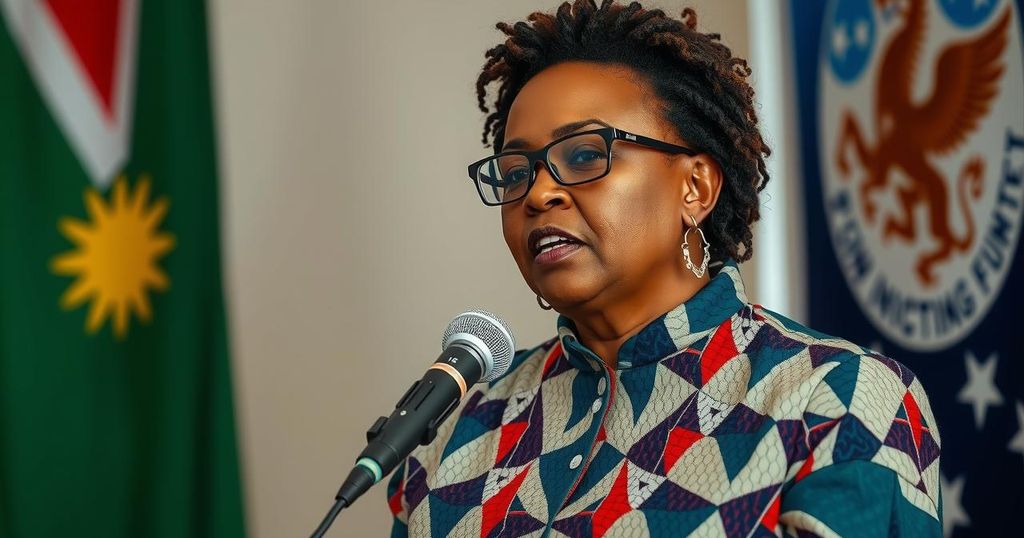Namibia’s Vice President Rises in Presidential Race Amid Election Controversies
In Namibia’s presidential election, Vice President Netumbo Nandi-Ndaitwah leads amid significant voting issues and opposition claims of illegitimacy. The elections, marked by logistical delays and complaints, may result in legal challenges against the results, threatening Namibia’s democratic stability, historically recognized in the region.
Namibia’s presidential election on November 27, 2024, has seen the Vice President Netumbo Nandi-Ndaitwah of the ruling South West Africa People’s Organization (SWAPO) take a leading position amidst significant voting irregularities. Technical issues, including a shortage of ballot papers, necessitated an extension of voting across several days—a decision that the opposition has contested as illegal and detrimental to the election’s integrity. Nandi-Ndaitwah, a prominent figure from Namibia’s independence movement, has garnered around 56% of the early vote tally, although only a fraction of total votes has been counted.
This election comes at a time of mounting public frustration with SWAPO, particularly concerning high unemployment rates and allegations of government corruption, which have marred the party’s standing since its rise to power following Namibia’s independence in 1990. The opposition, particularly the Independent Patriots for Change, is poised to challenge the election results in court, reflecting broader dissatisfaction with the ruling party’s governance but also threatening to disrupt Namibia’s historical reputation as a stable democracy in the region.
Namibia’s ongoing presidential election is pivotal, both due to its potential historical significance and the challenges it faces. Netumbo Nandi-Ndaitwah, the Vice President, is vying to become the first female president of Namibia. The election period has unveiled numerous administrative shortcomings, including logistical failures during voting, provoking concerns about the legitimacy of the electoral process. Historically, Namibia has enjoyed a relatively smooth electoral experience, contrasting sharply with the current disputes. The ruling SWAPO party is facing increasing critique amidst economic challenges that resonate with a dissatisfied populace, particularly among the youth, further intensifying the stakes of this election.
The presidential election in Namibia has been marred by critical issues that have led to opposition pleas for judicial intervention against the electoral results. With early votes showing Nandi-Ndaitwah in a strong position, the aftermath of this election will not only determine leadership but also test Namibia’s democratic fabric against rising discontent. As legal challenges loom, the implications for political stability in Namibia remain uncertain, highlighting the nation’s evolving electoral and governance landscape.
Original Source: apnews.com




Post Comment